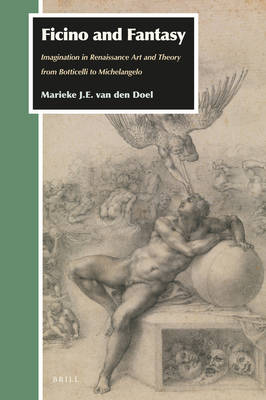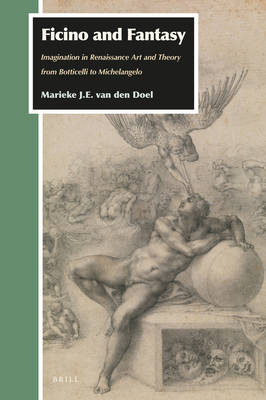
- Afhalen na 1 uur in een winkel met voorraad
- Gratis thuislevering in België vanaf € 30
- Ruim aanbod met 7 miljoen producten
- Afhalen na 1 uur in een winkel met voorraad
- Gratis thuislevering in België vanaf € 30
- Ruim aanbod met 7 miljoen producten
Zoeken
Ficino and Fantasy
Imagination in Renaissance Art and Theory from Botticelli to Michelangelo
Marieke J E Van Den Doel
€ 301,45
+ 602 punten
Omschrijving
Did the Florentine philosopher Marsilio Ficino (1433-99) influence the art of his time? Art historians have been fiercely debating this question for decades. This book starts with Ficino's views on the imagination as a faculty of the soul, and shows how these ideas were part of a long philosophical tradition and inspired fresh insights. This approach, combined with little known historical material, offers a new understanding of whether, how and why Ficino's Platonic conceptions of the imagination may have been received in the art of the Italian Renaissance. The discussion explores Ficino's possible influence on the work of Botticelli and Michelangelo, and examines the appropriation of Ficino's ideas by early modern art theorists.
Specificaties
Betrokkenen
- Auteur(s):
- Uitgeverij:
Inhoud
- Aantal bladzijden:
- 392
- Taal:
- Engels
- Reeks:
- Reeksnummer:
- nr. 29
Eigenschappen
- Productcode (EAN):
- 9789004459670
- Verschijningsdatum:
- 9/12/2021
- Uitvoering:
- Hardcover
- Formaat:
- Genaaid
- Afmetingen:
- 155 mm x 234 mm
- Gewicht:
- 716 g

Alleen bij Standaard Boekhandel
+ 602 punten op je klantenkaart van Standaard Boekhandel
Beoordelingen
We publiceren alleen reviews die voldoen aan de voorwaarden voor reviews. Bekijk onze voorwaarden voor reviews.








